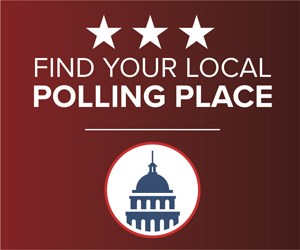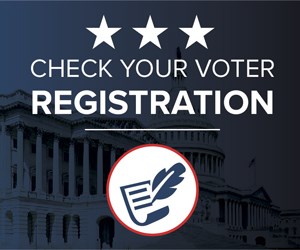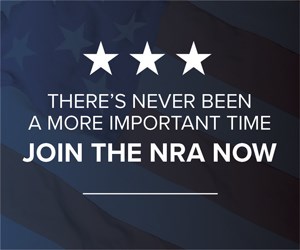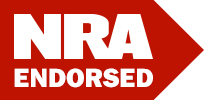Following the election of the most anti-gun president in American history and a Congress led by some of the most extreme anti-gun politicians ever to set foot on Capitol Hill, the most surprising news out of Washington during Obama-Biden's first 100 days was that gun control was suddenly--and supposedly--not a priority.
Make special note of that "supposedly."
Because in April, U.S. Sen. Dianne Feinstein, D-Calif., confirmed what gun owners had long believed: Congress and the White House are still fully committed to their gun-ban agenda, but are simply waiting until the political and legislative climate is right.
Appearing on CBS' "60 Minutes" on April 12, Sen. Feinstein, author of the 1994 gun ban signed by Bill Clinton, said that she planned to introduce additional legislation banning firearms, but that she was waiting for an opportune time.
When "60 Minutes" correspondent Leslie Stahl asked her whether other items dominating the current headlines--the economy, the federal bailouts, the war in Iraq--would take legislative priority, Feinstein conceded, "I wouldn't bring it up now."
But that's far from saying she wouldn't bring it up at all.
When pressed on whether and when gun bans would appear on Congress' agenda, Feinstein vowed, "I'll pick the time and place. No question about that."
No question, either, what that time, place or event is likely to be: a mass murder, a terrorist attack or any of the other varieties of national tragedy that the gun-ban zealots have traditionally exploited to promote their legislative strategy.
Worse yet, Feinstein is far from alone in her zeal for new gun bans, a fact she revealed when Stahl asked, "Has anybody--the Democratic leadership in the Senate, or anybody from the Obama administration--looked at you and said, 'Back off'?"
"No," Feinstein admitted. "Nobody said a word to me."
The Calm Before the Storm "It's weird," Peter Hamm, the communications director for the Brady Campaign to Prevent Gun Violence, told Newsweek. "When you see people like [Attorney General] Eric Holder or Hillary Clinton or [White House Chief of Staff] Rahm Emanuel become muted on this issue, you feel like you want to call up a friend and say, 'What's up?'"
But it's important to note that the silence is not because they've suddenly altered or abandoned their gun-ban intentions.
"They can't run from their records," said NRA Executive Vice President Wayne LaPierre. "Obama, Biden, Holder, Clinton, Emanuel and just about everyone with an office in the West Wing has a history of anti-gun positions and gun-ban victories spanning multiple administrations, if not decades.
"These folks haven't changed their tunes," LaPierre continued. "They're just not singing them as loud. They know what they want to do, the legislation is written and they're primed and ready to roll."
So what are they waiting for?
"They're waiting for another tragedy to exploit," said NRA-ILA Executive Director Chris W. Cox, "and then they'll make their move. Chances are, it won't be stand-alone legislation, but gun-ban amendments that they'll attach to other bills.
"That way, they can wait to drop it until the day they want to move forward," Cox said.
False Promises and False Starts During the presidential primaries last year, President Obama appealed to the left wing of his Democratic base by vowing to reimpose a ban on semi-automatic firearms already lawfully owned by millions of Americans.
Yet as soon as the Democratic nomination was secured, the Obama campaign reversed course, spending millions to air ads and mail fliers promising to protect the Second Amendment rights of gun owners and the freedom to hunt.
But then, just as now, they hadn't changed their tune--they'd just shifted its tenor.
Within 96 hours of winning the election, Obama and Biden posted an Internet webpage--at www.change.gov--outlining their "urban policy" objectives, which amounted to an anti-gun wish list.
Its agenda items included:
• Repealing the Tiahrt Amendment to open up sensitive law-enforcement gun-trace data for use in anti-gun grandstanding and politically motivated lawsuits;
• Requiring government approval of every firearm transaction--at gun shows and presumably everywhere else;
• Mandating technology to make guns "childproof" (in other words, less reliable)--technology that doesn't exist, and that you likely couldn't afford if it did; and
• Reinstating the Clinton-Feinstein semi-automatic gun ban (which a congressionally mandated study found to have little effect because "the banned guns were never used in more than a modest fraction of all gun murders" before the ban), and making those bans permanent.
Yet again, just hours after these new Obama-Biden agenda items were posted, the ensuing public outcry persuaded them to bite their tongues, bide their time and yank their page from the Internet--though it's since quietly reappeared on the official White House website.
In fact, before Obama's inauguration, Congresswoman Carolyn McCarthy, D-N.Y., who has sponsored gun bans for years in Congress, lobbied the Obama transition team to embrace and advocate her ban. But, as she confided to Newsweek, "They told me that's not for now, that's for later."
In other words, mum's the word.
Obama-Biden Cabinet members haven't been quite as careful not to leave the reservation and, thereby, reveal their true intentions.
For example, during Senate hearings for his confirmation as U.S. attorney general, Eric Holder tipped his hand.
He even went so far as to assert that gun bans and bans on common centerfire hunting rifle ammunition would not violate the Second Amendment protections secured by last summer's landmark U.S. Supreme Court ruling in District of Columbia v. Heller.
Holder testified that, in addition to banning private firearm transfers, "I also think that making the assault weapons ban permanent would be something that would be permitted under Heller."
Holder was nonetheless confirmed as attorney general, and soon afterwards he again departed from the White House company-line script.
Blame America--and Freedom--First At a February news conference focused on Mexican drug-cartel violence, Holder plainly sought to blame Americans' Second Amendment rights for crime and corruption in Mexico.
"As President Obama indicated during the campaign, there are just a few gun-related changes that we would like to make," Holder said, "and among them would be to reinstitute the ban on the sale of assault weapons."
White House political strategists must have read Holder the riot act over that transgression, for in subsequent media appearances, gone from his script was any mention of any ban.
When reporters tried to corner him on the issue, he sidestepped their questions.
Secretary of State Hillary Rodham Clinton likewise let her guard down.
During a trip to Mexico City she, too, tried to blame the Second Amendment rights of Americans for the wrongs committed by Mexican narco-terrorists.
"We know very well that the drug traffickers are armed by the transport of weapons from the United States," Clinton said during a news conference. "I think these assault weapons, these military-style weapons, don't belong on anyone's street.
"There's no doubt in my mind," Clinton said, "that the 10 years we had an assault weapons ban in America was one of the tools that helped to drive down the crime rate."
Congress Considers Every Conceivable Gun Ban ... Quietly Meanwhile, leading members of the U.S. Senate and House have been breaking rank as well. Their candid comments offer rare glimpses of a gun-ban agenda whose size and scope may very well be unprecedented in the history of this debate.
U.S. Sen. Dick Durbin, D-Ill., the second-most-powerful member of the Democrat-controlled Senate, appeared to be preparing his colleagues for the hard sell when, in a speech before the Senate, he lamented, "We don't debate guns around here much anymore. We used to."
In March, at a joint hearing before the Senate Judiciary Crime and Drugs Subcommittee and the Senate Caucus on International Narcotics Control, Durbin said, "an iron river of guns from the United States arms Mexican drug cartels to the teeth," and blamed American gun shows, in part, for the violence in Mexico.
In April, House Speaker Nancy Pelosi appeared on ABC's "Good Morning America," where she said, "The Supreme Court has ruled in a direction that gives more opportunity for people to have guns ... We want them registered. We don't want them crossing state lines."
Interestingly, as Howard Nemerov has pointed out in a weblog at www.examiner.com, Pelosi's fourth-highest overall business donor in the 2008 election cycle was a law firm, one of whose partners co-authored "model" legislation requiring that handguns be "personalized" (read: registered).
In the same election cycle, one of Obama's top donors, responsible for over $500,000 in contributions, was another law firm that just happened to represent the inventors of a patented "firearm safety system" that personalizes firearms.
Follow the money and connect the dots.
Other congressional leaders have been shilling their own gun-ban proposals as well.
U.S. Sen. John Kerry, D-Mass., chairman of the Senate Foreign Relations Committee, said the U.S. must "revive the ban on importing assault rifles into the United States"--surely a coded call for a new ban, because the two previous import bans are still in effect, accomplished with no more than the stroke of a pen by previous administrations.
| As President Obama indicated during the
campaign, "There are just a few gun-related changes that we would
like to make," Holder said. |
In a Senate Homeland Security Committeehearing, U.S. Sen. Joe Lieberman, who chairs that committee, called for additional and onerous regulation of U.S. gun shows.
Further, Chicago Congressman and former Black Panther leader Bobby Rush, D-Ill., has introduced H.R. 45, which would institute a national, federal licensing system for gun owners and a central, federal, computerized gun registration database nationwide.
Other proposals that have been floated over the past several years and surely wait just offstage in the wings include:
• Firearm microstamping and bullet serialization (gun registration);
• Lead bullet bans;
• Bans on centerfire hunting ammunition as "armor piercing";
• .50-caliber rifle bans;
• Federal abolition of Right-to-Carry.
Feinstein's Fusillade Only one question remained: When would the anti-gun extremists who control the Obama Cabinet and Congress finally step from the shadows and trip open the floodgates? That question was answered when Sen. Feinstein so brusquely declared: "I'll pick the time and the place."
Chances are, the time and place will follow a national tragedy, 24/7 hysteria from the national gun-hating media, outraged pronouncements from media-mad politicians--and the blind stampede toward prohibition will be on.
It's a strategy built on tragedy that Sen. Feinstein knows all too well.
As even the San Francisco Chronicle--which typically fawns over Feinstein and her anti-gun agenda--put it, "In 1994, Sen. Dianne Feinstein used the tragedy of San Francisco's 101 California massacre to push a decade-long ban on assault weapons through Congress."
Today, Feinstein chairs the Senate Judiciary Subcommittee on Terrorism, Technology and Homeland Security--a perfect position from which to harness fear, anger and national outrage to trample the Second Amendment to the Constitution.
She also chairs the Senate Rules and Administration Committee, which sets the terms for debate in that chamber.
"I am prepared to wage the assault weapons battle again, and I intend to do so," Feinstein said before the Senate recently. "I have been quiet about this because there are many other pressing needs of this nation. But with the help of the president, the administration and the people of this great country, we do need to fight back."
Although what, exactly, she's fighting for may not be clear to all, comments she made on another "60 Minutes" episode--this one after the 1994 gun ban was passed--reveal her true, if rarely expressed, intentions:
"If I could have gotten 51 votes in the Senate of the United States for an outright ban, picking up every one of them ... 'Mr. and Mrs. America, turn 'em all in,' I would have done it."
It's easy to see that the plans have been made, the battle lines drawn. It likely won't be long until Feinstein's "time" for pushing these gun bans is now, and her "place" is right here in the land of the free and home of the brave.













